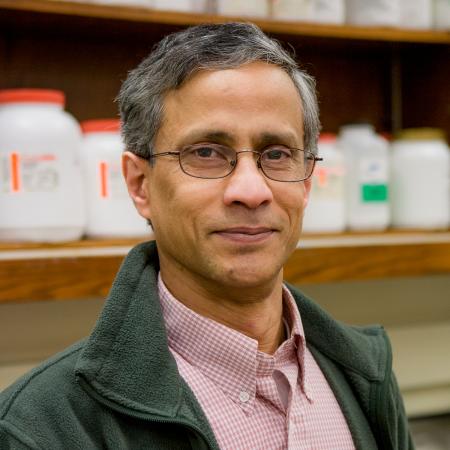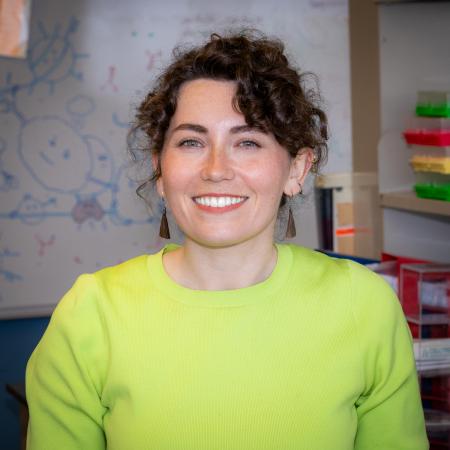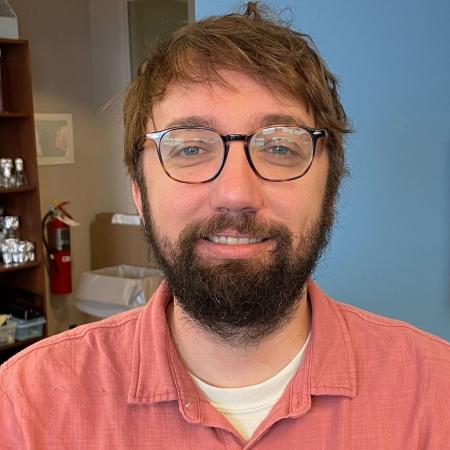Filter(s)
Showing 21 - 40 of 1147 Facilities
Advanced Molecular Diagnostics, LLC
Advanced Pathology Laboratories, P.C.
Advanced Research and Diagnostic Laboratory
Advantage Diagnostics Clinical Laboratory, LLC
AE and LY Ambulatory Endoscopy PLLC
Aegis Sciences Corporation
Agendia Inc
Agilent Biopharma CDX Services Laboratory
Ahava Medical and Rehab Center
Aizer Health, Inc.
AJAY GOEL
Akrivia Pathology
Albany Medical Center Hospital Pathology and Laboratory Medicine
Albany Medical Center-South Clinical Campus Laboratory
Albany Medical College Transplantation Immunology Laboratory
AlbaNYlabs LLC
Alere Toxicology Services Inc
Alere Toxicology Services Inc
Alice Hyde Medical Center Laboratory
Aligneage Fertility Laboratory, LLC

Nicholas J. Mantis, PhD
Chief, Microbial Pathogenesis and Immunology
We study how serum and mucosal antibodies protect mammalian hosts from microbial pathogens and toxins. We are interested in next-generation vaccines and adjuvants to combat biothreat agents and enteric diseases.

Kathleen A. McDonough, PhD
Director, Division of Infectious Disease
We study gene regulation in the context of bacterial pathogenesis, with a focus on two pathogens: Mycobacterium tuberculosis, the bacterium that causes TB, and Yersinia pestis, the etiologic agent of bubonic and pneumonic plague.

Kimberlee A. Musser, PhD
Clinical Director, Wadsworth Center David Axelrod Institute
We develop molecular diagnostic assays and reference testing for the detection and characterization of pathogenic bacteria and mycobacteria and to predict antibiotic resistance using real-time PCR and whole genome sequencing.

Dilip Nag, PhD
Arbovirus Laboratory
We study mosquito-borne arboviruses, focusing on vertical transmission and persistent arboviral infections in mosquitoes. We are also interested in determining the role of RNA-RNA recombination in virus evolution.

Anil K. Ojha, PhD
Mycobacterial Persistence and Pathogenesis
We investigate the influence of biofilm growth on the mechanisms of pathogenesis, persistence and drug tolerance in mycobacterial pathogens, with particular emphasis on Mycobacterium tuberculosis.

Joseph Orsini, PhD
Deputy Director, Newborn Screening Program
We focus on simplifying and automating published low-volume newborn screening tests in order to transform them into high-volume assays.

Siân Owen, PhD
Bacteriophages & Mobile Genetic Elements
My research explores the molecular biology of bacterial viruses (bacteriophages) and other mobile genetic parasites with a focus on how they shape the ecology and evolution of bacteria.

Jon Paczkowski, PhD
Microbial Signal Transduction and Cell-cell Communication
We seek to understand bacterial communication by investigating how bacteria interpret autoinducers and elicit appropriate gene expression, and, more globally, to understand how all organisms decode environmental stimuli.

Janice D. Pata, PhD
Polymerases, Mutations, and the Evolution of Antimicrobial Drug Resistance
We study the molecular mechanisms by which multiple DNA polymerases replicate bacterial genomes completely, with high accuracy and tolerance for DNA damage, yet also create mutations that give rise to antibiotic resistance.

Navjot (Vimi) Singh, PhD
Deputy Director, Division of Scientific Cores
We develop and apply cutting-edge NGS methodologies—spanning short-read, long-read, and RNA sequencing—to enhance biomedical research, pathogen detection, antimicrobial resistance, and public health surveillance.

Kirsten St. George, PhD
Chief, Laboratory of Viral Diseases
We develop viral detection and characterization assays and investigate new molecular chemistries and platforms. Research includes rhinovirus infection in transplant recipients, drug-resistant influenza and adenovirus evolution.

Haixin Sui, PhD
Cellular and Molecular Basis of Diseases - Structural Cell Biology
We study the structural basis of macromolecular assemblies and organelles in epithelial cells for sensing or responding to extracellular environmental changes. Our approach involves a variety of customized methods in advanced electron microscopy.

Joseph T. Wade, PhD
Microbial Gene Expression
We study gene regulation in bacteria, with a focus on genome-scale approaches. We are interested in regulation of transcription, the function of non-coding RNAs, and leaderless translation initiation.